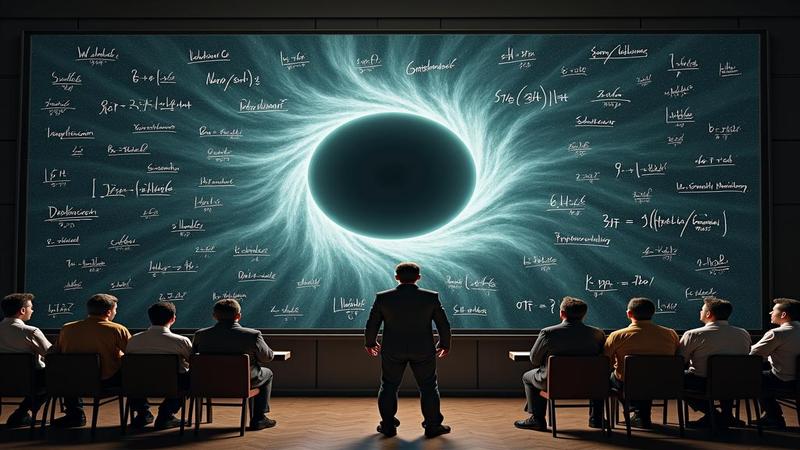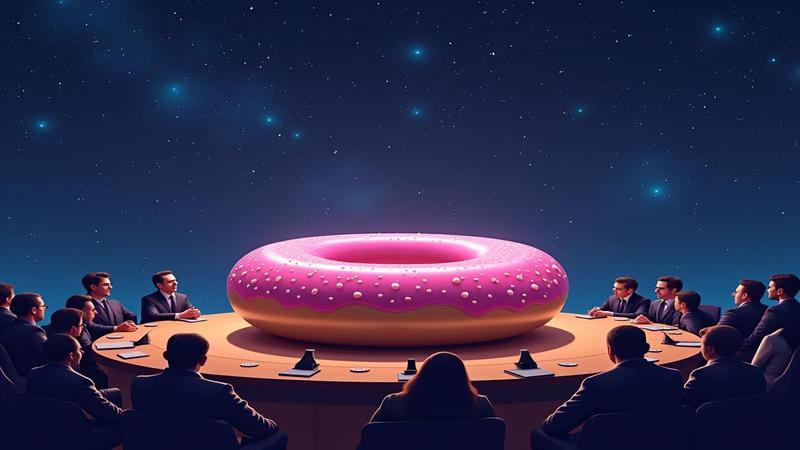Black Holes Might Be the Universe’s Secret Dark Energy, Study Says

In a plot twist more existential than a midlife crisis, scientists declared that black holes might be the elusive source of the universe’s dark energy. The claim, which currently has more skepticism than a reality TV reunion, has the physics community rearranging their slides and their snacks.
Researchers say the universe’s expansion could be powered by the same stuff that eats suns, only in reverse. If true, it’s the kind of cosmology that makes you want to drink champagne from a beaker while wearing a lab coat.
The study argues that vacuum energy and black holes are two sides of the same sardonic cosmic coin. Experts caution that correlation does not imply cookies in space, but they are still considering bringing snacks to the next symposium.
University press offices released statements that sounded like they had just learned the phrase ‘funding secured’. They asked journalists to approach the topic with ‘both curiosity and cautious optimism,’ which is a fancy way of saying ‘we’ll take grant money anywhere’.
Meanwhile, Twitter is convinced this means the universe has a mood ring and is currently glowing neon. Memes comparing dark energy to spare change in a vacuum are trending.
Astronomers warn that even if true, the discovery would still need peer review, replication, and at least three donuts. The cosmos, after all, loves a good audit as much as it loves gravity.
Newsrooms are feverishly rerunning old graphs with new color palettes. Editors demand a catchy quote about nothing and everything at once.
To celebrate, researchers reportedly ordered a ‘cosmic coffee mug’ emblazoned with the paradox of nothing. Scientists joked that sipping from it would finally prove that caffeine can escape an event horizon.
But the real takeaway, according to press gawkers, is that the universe might be funding its own expansion with invisible budget lines. Politicians are already proposing cosmic tax incentives for space-time fabric.
Some skeptics say the result is less a breakthrough and more a bureaucratic workaround. Others worry that misinterpreting dark energy as a hobby could lead to a tailored curriculum for astrophysical daydreaming.
The paper reportedly underwent multiple rounds of revisions after the lead author spilled coffee on the data. The team claims the stains were just accidental meteors, which is exactly the kind of alibi you want when funding hangs in the balance.

In a related scene, lab interns were seen organizing a launch party featuring a ‘antigravity kettle’ as centerpiece. The device supposedly pours tea upward, which is either a nod to the theory or a terrible office prank.
Public outreach coordinators say the narrative could be used to inspire students to major in ‘cosmos’ and ‘uncertainties’. Alternatively, it might just drive people to binge-watch sci-fi while ignoring their mortgages.
Critics argue that turning black holes into boilerplate energy sources cheapens the mystery of space. But the marketing teams love it because it sells tote bags with equations.
Theoretical physicists remind everyone that models are simplified and that reality still likes gatekeeping. They encourage readers to maintain skepticism while wearing lab goggles for dramatic effect.
If planets could clap, they would, at a chorus line of photon dust. But since they can’t, the review panels do it for them with slow nods and caffeinated yawns.
Meanwhile, the universe keeps expanding, as if to avoid paying rent on this drama. Researchers insist the truth will out, once the coffee runs dry and the grant checks clear.
Some statisticians propose adding a ‘mystery factor’ to all equations to account for cosmic mood. This would make the cosmos a lot more relatable to people who misplace their keys and also their sense of purpose.
No matter what, the story has already achieved what science journalism often fails to deliver: click-through lore. Readers are left with a question: if black holes are powering dark energy, does that mean the universe finally has a caffeine habit?
In the end, the cosmos keeps expanding, and so do our headlines. Stay tuned for updates, or maybe an espresso-fueled press release from a galaxy near you.
Our editors remind readers that science is a process, and process tastes better with popcorn and skepticism. We will continue to mock the mysteries until they reveal a practical gadget.
Until then, the universe will keep punching out riddles while we punch up headlines. And yes, that’s science, satire, and a very expensive calendar app rolled into one.
